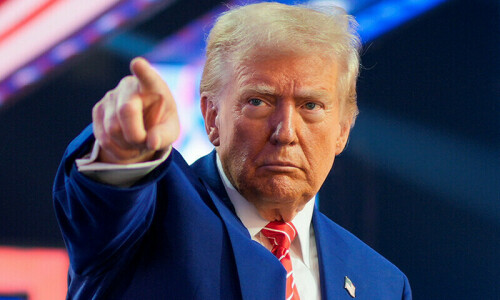China has thanked Pakistan for its support on Hong Kong during a debate at the United Nations General Assembly’s (UNGA) Third Committee earlier this week.
Speaking at a regular press briefing on Friday, Chinese Foreign Ministry Spokesperson Hua Chunying said: "We want to express our appreciation to Pakistan and all these countries for speaking out for justice.
"Their support once again proved that justice will always prevail and a small number of western countries who attempted to smear China under the pretext of Hong Kong and Xinjiang issues failed again."
Earlier this week, Pakistan had said that Hong Kong's affairs were Beijing's internal matter while underscoring the importance of non-interference in the domestic affairs of sovereign states.
Pakistan's Permanent Representative to the UN Ambassador Munir Akram had made the comments while speaking on behalf of 55 countries, in response to a statement by Germany urging China to respect the rights of Uighur Muslims and expressing concern about the political situation in Hong Kong.
Germany’s UN ambassador Christoph Heusgen had urged China to allow UN rights observers “immediate, meaningful and unfettered access” to Xinjiang and called on Beijing to uphold the rights and freedoms of Hong Kong's residents, according to Al Jazeera.
Cuba had also followed with a statement on behalf of 45 countries supporting China's measures in Xinjiang, stating that the steps taken by Beijing were carried out within the law to safeguard the rights of all ethnic groups in the province, the Washington Post reported.
"During the general debate of the Third Committee [...] more than 70 countries voiced their support on China's relevant positions. By far, 57 countries have co-signed a joint statement on Hong Kong-related issues and 48 countries have made a similar joint statement on Xinjiang," Chunying said.
"Pakistan and Cuba have spoken on behalf of these countries in support of China's formulation and implementation of the law on safeguarding national security in the Hong Kong Special Administrative Region, believing that it will ensure the steady and successful implementation of 'one country, two systems', maintain the region's prosperity and stability, and ensure a safe environment for Hong Kong residents' exercise of legitimate rights and freedom."
She added that the countries commended the measures in Xinjiang for combating terrorism and radicalisation and protecting the human rights of all ethnic groups.
"They expressed their firm opposition to the politicisation of human rights issues, application of double standards, groundless accusations against China, and unjustified interference in China's internal affairs."
Chunying said Beijing opposed any individual, country and force creating instability, division and chaos in China and interfering in the country's internal affairs under the pretext of human rights.
In July, China approved a contentious national security law that allows authorities to crack down on subversive and secessionist activity in Hong Kong, a move decried by Western nations as a threat to the financial hub’s freedoms.
The legislation is aimed at curbing subversive, secessionist and terrorist activities, as well as foreign intervention in the city's affairs. It followed months of anti-government protests in Hong Kong last year that at times descended into violence.
On Wednesday, Pakistan's representative at UN said Hong Kong was "an inalienable part of China" and Hong Kong affairs were China’s internal affairs that "brook no interference by foreign forces".
He also named the countries which had authorised him to speak on their behalf, and said they supported China’s “one country, two systems” policy and stressed that legislative power on national security in any country rests with the state.
“The enactment of the law on safeguarding national security in Hong Kong is a legitimate measure that ensures the 'one country, two systems' [policy] goes steady and enduring, and that Hong Kong enjoys long term prosperity and stability,” Akram said.
“The legitimate rights and freedoms of Hong Kong's residents can be better exercised in a safe environment," he added.
















































